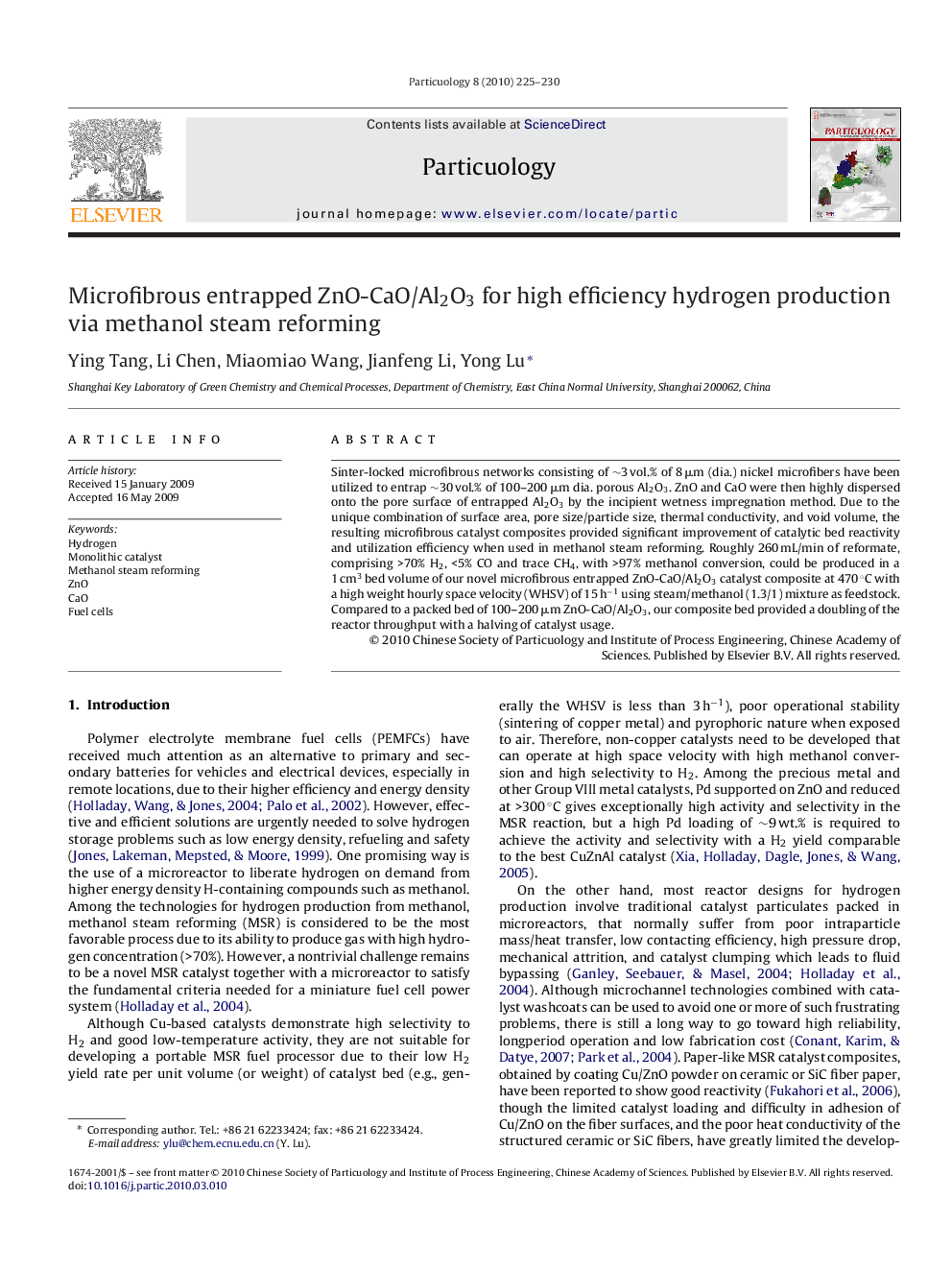| Article ID | Journal | Published Year | Pages | File Type |
|---|---|---|---|---|
| 672489 | Particuology | 2010 | 6 Pages |
Abstract
Sinter-locked microfibrous networks consisting of â¼3 vol.% of 8 μm (dia.) nickel microfibers have been utilized to entrap â¼30 vol.% of 100-200 μm dia. porous Al2O3. ZnO and CaO were then highly dispersed onto the pore surface of the entrapped Al2O3 by the incipient wetness impregnation method. Due to the unique combination of surface area, pore size/particle size, thermal conductivity, and void volume, the resulting microfibrous catalyst composites provided significant improvement of catalytic bed reactivity and utilization efficiency when used in methanol steam reforming. Roughly 260 mL/min of reformate, comprising >70% H2, <5% CO and trace CH4, with >97% methanol conversion, could be produced in a 1 cm3 bed volume of our novel microfibrous entrapped ZnO-CaO/Al2O3 catalyst composite at 470 °C with a high weight hourly space velocity (WHSV) of 15 hâ1 using steam/methanol (1.3/1) mixture as feedstock. Compared to a packed bed of 100-200 μm ZnO-CaO/Al2O3, our composite bed provided a doubling of the reactor throughput with a halving of catalyst usage.
Related Topics
Physical Sciences and Engineering
Chemical Engineering
Fluid Flow and Transfer Processes
Authors
Ying Tang, Li Chen, Miaomiao Wang, Jianfeng Li, Yong Lu,
